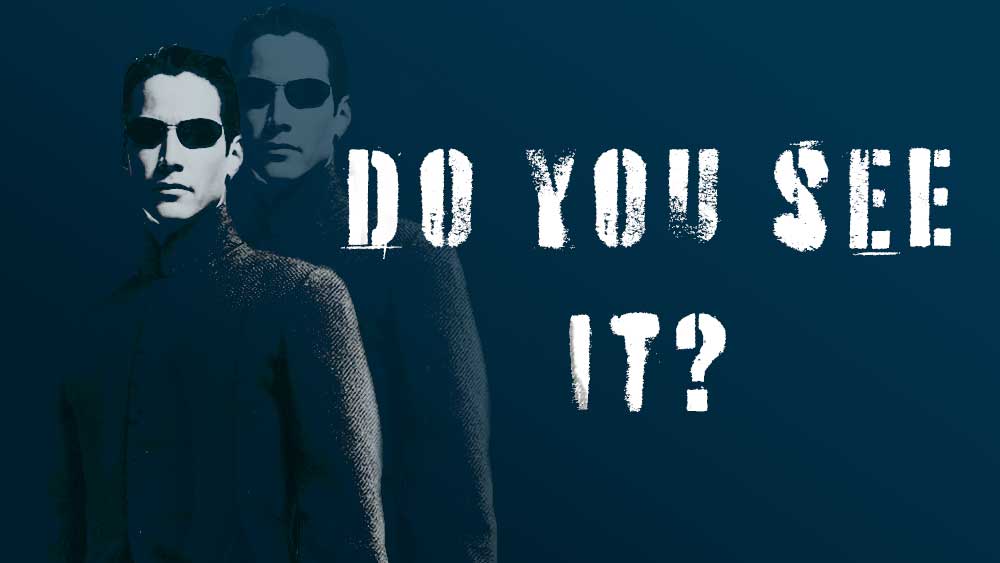In the science fiction film The Matrix, humanity lives in an illusion, a virtual reality created by machines to control people and exploit them as an energy source. What if this dark vision is already our reality?
Today, we are trapped in a digital Matrix of disinformation, emotional manipulation, and hidden control mechanisms—cleverly wielded by powerful players to shape our perception and enrich themselves with power and wealth. In this article, we reveal the 5 meta-levels of this modern Matrix and show you how to better protect yourself from it.
1. Meta-Level: Social Media
Social media has revolutionized our world, allowing us to communicate and connect with each other in real-time. But these platforms are more than just harmless communication tools—they are powerful instruments for manipulating public opinion. Disinformation and fake news spread like wildfire, often deliberately planted to influence the masses.
The targeted spread of fake news can distort our perception of reality and create a culture of fear and anger.
One example is the false accusations against German politician Annalena Baerbock in 2024: a fake story circulated on social media about an alleged affair between the German Foreign Minister and a Nigerian escort. This disinformation campaign aimed to damage her reputation.

2. Meta-Level: Artificial Intelligence and Bots
Artificial Intelligence is a game-changer in many fields, from personalized recommendations to automated processes. But behind the shiny facade lurk darker implications. AI-powered bots have become key players in the realm of mass manipulation on social media. These bots can ignite artificial debates, shape public opinion, or strategically spread disinformation at a scale and speed no human could match.

What’s even more sinister? These automated forces blend seamlessly into genuine conversations, making it nearly impossible for the average user to distinguish between authentic human interaction and cleverly engineered influence campaigns. The result: a manipulated reality where manufactured narratives can dominate, distort, and deceive.
To spot AI and bot accounts, look for unnatural behavior, such as frequent, round-the-clock posting or profiles with many followers but little genuine interaction. Watch for a lack of personal details, generic usernames, and repetitive, standardized replies. These are clear signs that you’re dealing with automated or inauthentic accounts designed to influence or distort conversations.
3. Meta-Level: Mainstream Media
Mainstream media play a crucial role in shaping public opinion. They are often the go-to source for information on significant political or societal issues. However, these information channels are not always as independent as they appear. Many are influenced by state interests or powerful lobbying groups, which skews their reporting.
When the media landscape is controlled by state actors or lobby groups, information is deliberately filtered or twisted. Topics that don't fit the political or economic narrative are suppressed, while propaganda is amplified. The masses are subtly steered in a specific direction, often without realizing it. The illusion of a free press hides a deeper truth: narratives are carefully curated, and what we think we know is sometimes nothing more than a controlled perception.
To avoid manipulation, consume news from a variety of sources to gain different perspectives. Additionally, research who owns or funds a media platform to identify potential conflicts of interest. This way, you can form a well-informed and independent opinion, free from hidden agendas or biased narratives.
4. Meta-Level: Religious Institutions / Ideologies
Religion and ideology have always been powerful tools for influencing the masses. They provide answers to existential questions and foster a sense of community. Yet, this strong bond is often exploited to advance political or social agendas. Religious leaders or ideological groups can deliberately stoke fears or construct enemy images to rally their followers.
The Iranian government refers to Israel as the “Zionist enemy” and describes the destruction of the state as a religious duty. This rhetoric is charged with religious undertones, as the country's leaders frame resistance against Israel as a sacred mission to defend Islam. Such statements are used to rally the population behind an aggressive foreign policy and divert attention from domestic pressures. By invoking religious duty, the regime seeks to unify its citizens and legitimize its actions on the international stage, often obscuring internal issues and dissent.
Practice critical thinking by questioning religious and ideological statements and analyzing who stands to gain the most from the rhetoric and why. This allows you to identify whether certain messages are intended to secure power or influence, helping you form a well-informed, independent opinion instead of falling victim to manipulation. By looking beyond surface-level claims, you empower yourself to understand the true motives behind the narratives presented to you.
5. Meta-Level: Sportwashing
Sports have the power to captivate the masses and strengthen national identity. But in recent years, a dangerous trend has emerged: sportwashing. Authoritarian regimes and controversial corporations use major sporting events to polish their image and divert attention from their darker actions. While the world cheers, human rights abuses and political scandals often go unnoticed.
Sportwashing is a sophisticated form of distraction. It keeps people emotionally invested in the thrill of the game, while critical issues fade into the background. States and corporations effectively gain a “moral free pass,” allowing them to continue their misdeeds unchecked—at the expense of victims whose stories are drowned out by the roar of the crowd. In this way, the spectacle of sport becomes a shield, protecting those who should be held accountable.
The 1978 FIFA World Cup in Argentina took place during the military dictatorship under General Jorge Rafael Videla. The regime used the tournament to divert attention from human rights abuses and project a positive image of the country. While the World Cup was underway, dissidents were being persecuted, and near the River Plate Stadium, the venue of the final match, stood the Navy School of Mechanics (ESMA), which functioned as a secret detention and torture center.

Source: https://www.history.com/news/world-cup-soccer-argentina-1978-dirty-war
These events are often considered an early example of "sportwashing," where authoritarian regimes use sporting events to divert attention from human rights abuses and enhance their international reputation. By leveraging the global fascination with sports, such regimes manage to whitewash their image, making it harder for the world to see the suffering and injustice occurring behind the scenes.
Stay vigilant during major sports events and pay attention to whether human rights issues are being deliberately ignored. Research the background of the organizers and their political interests to understand if the event is being used to polish the image of problematic regimes. This way, you can look critically beyond the glittering facade and be more aware of the real motivations behind the spectacle.
These meta-levels are powerful tools for exerting influence, but in the end, it’s our reactions that make the difference. The powerful draw their strength from the approval and emotions of the masses. The key is to resist manipulation and become a model of reason and justice—not through violence, but through critical thinking and constructive action. By staying informed and thoughtful, we can disrupt the cycle of control and contribute to a more balanced, aware society.







Leave a comment
This site is protected by hCaptcha and the hCaptcha Privacy Policy and Terms of Service apply.